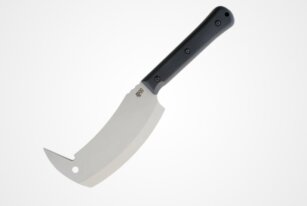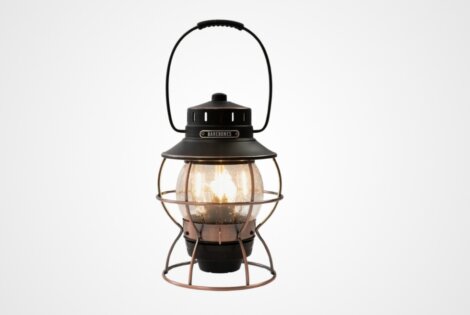Whether you work in the construction industry, as a mechanic, or just feel like doing some DIY once in a while, tools play a pivotal role in pretty much every project. Of course, tools transcend occupational roles. We need them in our everyday lives too. Maybe you’re doing home maintenance and repair. Perhaps you saw something in a magazine that you want to build as a hobbyist. Or maybe you do need them for work. Either way, you need tools. And your tools must be high quality so they last longer and get the job done. Don’t just settle for the cheapest tools you can find on the shelf at the local Big box store. In this article, we’ll teach you how to tell the difference between quality tools and cheaply made tools, and why it’s important to invest in the right tools. Get your favorite toolbox ready because it’s time to find the right tools for you.
Finding The Right Tool For The Job
Every job—whether it’s a weekend hobby project or an important repair—requires the right tools. Finding the right tools for the job means analyzing your needs, determining how often you’ll use them, and keeping your budget in mind as you plan a project. Some projects don’t require much in the way of tools — a drill, hammer, saw, or screwdriver will likely be all you need — while other projects require much more detail and additional tools. Amateur projects require the bare minimum while more advanced stuff usually requires power tools. If you’re doing more serious repairs like plumbing, electrical, or HVAC work, then you need the right tools for that job. These are typically professional grade and can get to be quite expensive if you don’t invest in quality from the start. Frequently using certain tools means you should invest in higher quality or more professional versions of them.
What Features Mark Quality?
In theory, instructing someone to “find quality tools” sort of implies they understand what quality actually means in that context. But people can’t read minds, and they might not know what makes a tool worthwhile. So what makes a tool a quality one, anyway? It all comes down to sturdy construction and a few other factors. One of them is high-quality performance. If a tool can’t do the job it’s designed for, then it’s worthless. Tools should also be easy to maintain. Furthermore, they must comply with conformance standards for tool designs. Otherwise, they might not be able to handle what you need. Professional-grade tools like power saws and drills should also be a part of your workshop. Ensuring they’re made well should be a top priority so you can keep using them for a long time.
Why Quality Matters
The biggest reason tool quality matters is related to the life of your tools. Poor-quality tools or cheaply manufactured items don’t last. They often break easily, wear out sooner, or experience malfunctions quicker. No one wants to use a pole saw with a chain that goes dull after cutting a few branches. Moreover, quality tools won’t wear out fast. And with the right level of care and maintenance (basically cleaning, lubricating, and proper storage), they’ll stay resilient enough to be used for decades or longer. Think of them as an investment that will save you money while making your projects easier (no more scrounging around for the right tools or finding one that works). Also, think about it from the vendor’s perspective as well. Quality directly ties into reputation and customer satisfaction. There’s a reason why certain names (like Craftsman and Milwaukee) are synonymous with quality.
Where To Find The Best Tools
Finding the best tools comes down to plenty of research and due diligence. Look around for online reviews. Talk with people who have used the tools. Ask around the local hardware store. Discuss tools with other professionals. All of these routes can lead you to find the best quality tools. But for the best way to purchase them, check out a professional online tool store that specializes in hand tools, mechanics tools, and any other tools that can suit your project needs. Ordering them online is easy and convenient. It can also be less costly in the long run. Plus, you know you’re going to get quality because you can see reviews in real time and ask customer support about the items. Whether you’re purchasing a single tool or looking to build an entire workshop, purchasing tools online is one of the best methods for acquiring them.
Comparing Costs
 Once you’ve committed to quality, it’s time to start buying your tools! But to get the most value from them, you must compare costs. Cost comparisons are pretty straightforward. The first thing to look for is how different tools perform. See what their prices are compared to others. Ask questions about the tools. What kind of longevity and durability do they have? Do they offer warranties? Compare online reviews and ratings to learn about others’ experiences with the tools. If you have any friends or colleagues who’ve used the tools, ask them about it. Comparing prices and checking reviews allows you to determine the quality of tools and make informed decisions about your purchases. Ideally, you want the most value for your money. But you also don’t want to sacrifice reliability and longevity. Tool manufacturers have certain performance standards except for the industry and doing cost comparisons guarantees you get the best tools for your money when you purchase them online.
Once you’ve committed to quality, it’s time to start buying your tools! But to get the most value from them, you must compare costs. Cost comparisons are pretty straightforward. The first thing to look for is how different tools perform. See what their prices are compared to others. Ask questions about the tools. What kind of longevity and durability do they have? Do they offer warranties? Compare online reviews and ratings to learn about others’ experiences with the tools. If you have any friends or colleagues who’ve used the tools, ask them about it. Comparing prices and checking reviews allows you to determine the quality of tools and make informed decisions about your purchases. Ideally, you want the most value for your money. But you also don’t want to sacrifice reliability and longevity. Tool manufacturers have certain performance standards except for the industry and doing cost comparisons guarantees you get the best tools for your money when you purchase them online.







